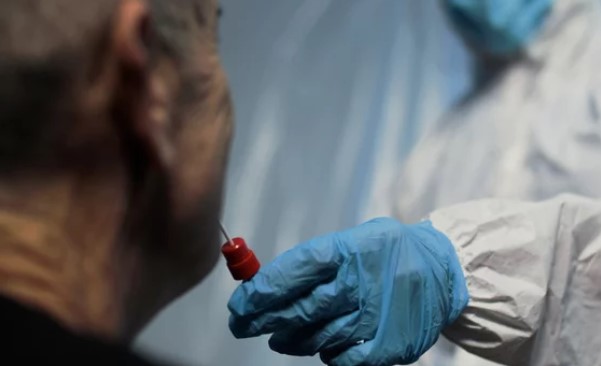According to a new study published today in scientific journal BioRxiv – a G2P-Japan preprint about the role of #P681R mutation in SARS-CoV-2 S protein, it was reported in the updated study a new hallmark of the #Delta variant (B.1.617.2 lineage). In the current version, according to the authors show that the Delta is more pathogenic.
The study also demonstrate the virus bearing #P681R mutation, a hallmark of the Delta, becomes more pathogenic. Their data suggest the Delta is more pathogenic and #P681R mutation is responsible for the higher fusogenicity and pathogenicity of the Delta.
Delta Variant is more pathogenic
During the current SARS-CoV-2 pandemic, a variety of mutations have been accumulated in the viral genome, and currently, four variants of concerns (VOCs) are considered as the hazardous SARS-CoV-2 variants to the human society1. The newly emerging VOC, the B.1.617.2/Delta variant, closely associates with a huge COVID-19 surge in India in Spring 20212. However, its virological property remains unclear.
Here, we show that the B.1.617.2/Delta variant is highly fusogenic, and notably, more pathogenic than prototypic SARS-CoV-2 in infected hamsters. The P681R mutation in the spike protein, which is highly conserved in this lineage, facilitates the spike protein cleavage and enhances viral fusogenicity.
Delta Variant Of Covid-19 Spreading Fast : Sri Lanka Battles Third Wave
Sri Lanka is recording 1000+ Covid-19 cases with approximately 50 deaths daily as the country suffers the ongoing third wave of coronavirus. Health authorities have urged people and the government to maintain caution as Delta Variant spreads across the country.
The study on Delta Variant moreover, suggested that the P681R-bearing virus exhibits higher pathogenicity than the parental virus. Our data suggest that the P681R mutation is a hallmark that characterizes the virological phenotype of the B.1.617.2/Delta variant and is closely associated with enhanced pathogenicity.
Note: bioRxiv posts many COVID19-related papers. A reminder: they have not been formally peer-reviewed and should not guide health-related behavior or be reported in the press as conclusive.






